 This story happened in 1778, a time of terrible war. As General George Washington’s troops shivered in their winter camp in Pennsylvania, at Valley Forge, Daniel Boone was hunting out west, in the future state of Kentucky. Nearby, in the forest, his friends were boiling down mineral-rich spring water to make salt for their families in Boonesborough. It was a community of cabins in and around a log stockade, to protect the pioneers from attackers. Of whom were they afraid? The First Nations, who’d been living in the so-called New World for countless generations. Specifically, Daniel Boone’s people feared the Shawnee and Cherokee peoples—and vice versa. The Native Americans were fighting an endless supply of white settlers determined to take their ancestral lands. All through and after the Revolutionary War years, American, British, and Native warriors fought throughout the wilderness west of the Appalachian Mountains and east of the Mississippi River. We know Daniel Boone as a frontier explorer and trailblazer. To the Natives, he was “Wide Mouth,” a leader of the invasion that threatened to end their ways of life forever. So it was a BIG deal when, on a winter day in 1778, Shawnee Chief Blackfish and his warriors captured him! Daniel used all of his wits to work out a trade: In return for making him and his salt-making friends their prisoners, the Shawnee would put off attacking Boonesborough. For ten days, the captives were marched through the snowy woods to Chillicothe, the big Shawnee town in Ohio. The British paid bounties for colonial prisoners, so some of Daniel’s friends were sold. They and others were lost to history, but we know that Daniel had to prove his courage in the gauntlet, dashing between rows of Shawnee warriors, getting hit by clubs. Now, he’d known Natives and studied their ways since he was a boy. To stay safe until he could get back to his family, he knew he needed to let Chief Blackfish do as he wished: adopt him into his tribe. Daniel got scrubbed. He got all of his hair plucked out except for a “scalp lock” atop his head. He got a new name too: Sheltowee or “Big Turtle.” But it was June before he got the chance to escape. Then Daniel ran, hid, hiked, and limped 160 miles home to Boonesborough, in time to prepare for the attack of the angry Shawnee. But that’s another story for another day. 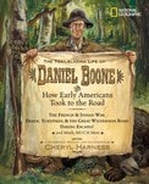 Once again, Cheryl Harness combines lively storytelling with vividly detailed illustrations to transport readers back to an exciting era in American history. During Daniel Boone's 86-year life, Colonial America is transformed into a revolutionary republic, trails morph into roads and highways, and Americans discover new ways to travel—by canal, and by steam-powered boats and trains. Readers journey through these formative milestones in America's great westward expansion with the aid of a time line running along each page, 200-plus illustrations, maps, sidebars, primary-source quotations, and resource lists. For information on The Trailblazing Life of Daniel Boone: How Early Americans Took to the Road, click here. MLA 8 Citation
Harness, Cheryl. "Kidnapped!" Nonfiction Minute, iNK Think Tank, 4 June 2018, www.nonfictionminute.org/the-nonfiction-minute/kidnapped.
0 Comments
“My heart was enlisted,” the Marquis de Lafayette wrote in his memoirs, “and I thought only of joining my colors to those of the revolutionaries.” Who were the revolutionaries Lafayette referred to? Americans, bien sûr! Lafayette was just 19 when he paid for his ship, hired a crew and set sail from France to attach his colors to ours. He defied his king, who denied him permission to leave, and left his pregnant wife and child behind. Seasick every day of his month-long voyage, he nevertheless learned English along the way. Docking at Charleston, NC, he trekked hundreds of miles to Philadelphia, suffering a month of broken carriages, lame horses, and nightly mosquito raids. He remained buoyant, and dedicated to our fight. Finally at Continental Congress, he enthusiastically introduced himself—only to be turned away. There were too many foreign officers, they told him. S'il vous plaît, Lafayette pleaded. He’d come so far—and he would work for free. They accepted his services, but refused to give him what he yearned for: troops to command. At least Lafayette could stay—and meet his idol, Commander-in-Chief George Washington! Lafayette felt an instant connection with Washington, who invited the young Frenchman to live with him. Washington was diplomatic. He knew Lafayette was of noble descent, and he needed France’s aid in order to win the revolution. But Lafayette mistook the invitation for affection. “I am established in his house, and we live together like two attached brothers…” he wrote his wife. It wouldn’t be long before Washington felt genuine affection for Lafayette. As the situation in Philadelphia grew dire—they were surrounded by the British and awaited an inevitable attack—Washington took a moment to have a “great conversation” with Lafayette. Think of me as your father, he told him. Lafayette was touched in the deepest way. At the Battle of Brandywine, the Americans were overwhelmed and defeated. Our soldiers panicked—deserting their lines. Lafayette requested permission to rally the troops. Though he feared for Lafayette’s life, Washington granted his wish. Lafayette’s great spirit convinced the troops to stay. The Americans still had an army, to fight another day. A musket ball ripped through Lafayette’s leg! He eventually collapsed. Back at headquarters, Washington instructed his personal physician, “Treat [Lafayette] as if he were my son. For I love him the same.” “ 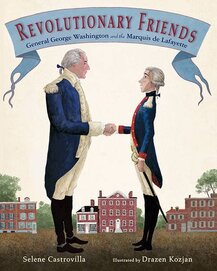 The father/son relationship of George Washington and the Marquis de Lafayette developed while they were under British siege. A multiple award-winning choice in history books for kids, and a compelling account in American history by a research-loving writer! You can buy it here.  Since 1775, Americans in the 13 British Colonies had been fighting to free themselves from mighty Great Britain. The French didn’t care for the British, having had their own wars with them, so many a Frenchman came to help the Americans. One was a teenaged aristocrat, the Marquis de Lafayette. He so admired America’s revolutionary ideals of liberty and democracy that he sailed there in 1777 to offer his money and services to his idol, General George Washington. By 1781, General Lafayette was leading French and American troops, battling the British in Virginia. Now a fellow there named James Armistead joined the fight, once he got his master’s permission. After all, Armistead was an enslaved African American. What did he do? He hung around the British, finding out what they were up to – dangerous work! Then Armistead, patriot spy, took his info to General Lafayette, who used it to help beat the British at Yorktown in October 1781, which, in turn, led to the United States’ victory in the Revolutionary War. The Marquis went back to France. Armistead went back to work for his master. Though he’d helped win America’s independence, he did not win his. When Lafayette made a return visit in 1784, he was outraged to find his fellow veteran still enslaved! The Marquis saw to it that Armistead was freed and the former slave showed his gratitude by changing his name to James Armistead Lafayette. But this isn’t how the story ends. Forty years later, the Americans invited the Marquis to come for a visit. He’d grown old. He’d suffered in prison during France’s own revolution in the 1790s. How splendid it was, visiting the United States— all 24 of them! Oh, the parties and banquets the Americans had for their old friend! But one of the happiest moments of all was in early 1825. The old aristocrat was riding in a parade through Richmond, Virginia, when he spotted a white-haired black gentleman in the crowd. The Marquis reined in his horse, dismounted, and went to greet James Armistead Lafayette. And the two old heroes of the American Revolution flung their arms around one another. 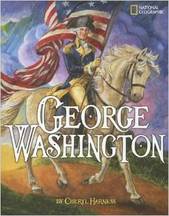 Cheryl Harness uses her wonderfully vibrant art and down-to-earth writing style to present George the adventurous boy, tromping through the woods with his dog and his hunting rifle; George the courageous military leader fighting alongside his men; George the cunning military strategist, outfoxing the British and forcing their surrender at Yorktown; George the brilliant statesman presiding over the Constitutional Convention; and George the President, wisely protecting our country from enemies foreign and domestic so it could grow strong. For more information, click here. MLA 8 Citation
Harness, Cheryl. "The Aristocrat and the Spy." Nonfiction Minute, iNK Think Tank, 10 Apr. 2018, www.nonfictionminute.org/the-nonfiction-minute/ the-aristocrat-and-the-spy. 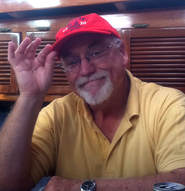 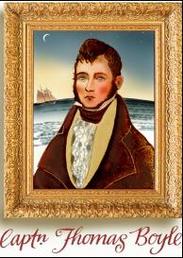 The Revolutionary War should have won us independence from Britain. Britain’s Royal Navy didn’t care. In the early 1800’s it was busy fighting Napoleon but it had time to stop United States merchant ships on the high seas from trading with France or British colonies. It always needed sailors, so its officers seized our sailors, claiming they were Royal Navy deserters. We needed a more independent independence. President James Madison declared a second war against Britain in 1812. Britain declared an embargo, forbidding our ships to leave port. The Royal Navy had hundreds of big warships; we had six. To supplement our tiny Navy, the United States issued letters of marque, government licenses for privateers, private men o’war. The boldest and most successful privateer was Captain Thomas Boyle’s Chasseur. It was a new kind of vessel, a Baltimore pilot schooner, the fastest ship afloat. No sailboat can go directly into the wind. A square-rigged ship could manage to sail only 80° to the left or right of the wind’s direction. The Chasseur sailed 55° off the wind. Working into the wind by tacking (sailing to one side of the wind, then the other) she could go 10 miles to windward by sailing about 24 miles on diagonal courses. The Royal Navy’s square rigged men o’war would log almost 59 miles to reach the same point. Chasseur carried only 16 small cannon – no match for a big man o’war’s 30 to 40 guns. But Boyle had no intention of slugging it out. If a man o’war appeared, he would scamper away to windward. Chasseur couldn’t be caught. Boyle crossed the Atlantic and quickly took 18 British merchant ships. He was bold as a lion: he sent the last vessel back into port, so its captain could nail a proclamation to the door of Lloyd’s Coffee House, where London ship-insurers gathered. It was a politely worded embargo on all the British Isles – the same embargo Britain had attempted to force on the United States! Did Boyle succeed? Yes and no. Many British ships sailed, but fear of the Chasseur raised the price of insurance 300%! Some of Lloyd’s insurers wouldn’t write policies on ships voyaging near America. Our Navy was small but mighty: our six heavy frigates (including Constitution, “Old Ironsides”) beat many Royal Navy frigates ship-to-ship. Our combination of daring, skill and brass audacity won the War of 1812 against the largest navy in the world. 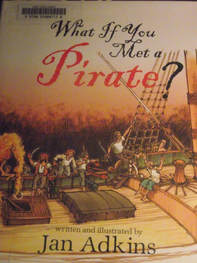 You know all about pirates. They were big guys with fancy hats, silk jackets, peg legs, and parrots cursing on their shoulders. They sailed big ships with brass guns and made lubbers walk the plank . . . right? Wrong! If you want to know what pirates were really like, then read Jan Adkin's book, What if You Met a Pirate? Click here for more information. Jan Adkins is a member of iNK's Authors on Call and is available for classroom programs through Field Trip Zoom, a terrific technology that requires only a computer, wifi, and a webcam. Click here to find out more. MLA 8 Citation
Adkins, Jan. "The Man Who Held Up Britain." Nonfiction Minute, iNK Think Tank, 6 Feb. 2018, www.nonfictionminute.org/the-nonfiction-minute/ the-man-who-held-up-britain. |
*NEWS
|
For Vicki Cobb's BLOG (nonfiction book reviews, info on education, more), click here: Vicki's Blog
The NCSS-CBC Notable Social Studies Committee is pleased to inform you
that 30 People Who Changed the World has been selected for Notable Social Studies Trade Books for Young People 2018, a cooperative project of the National Council for the Social Studies (NCSS) & the Children’s Book Council
Categories
All
Abolitionists
Adams Janus
Adaptation
Adaptations
Adkins Jan
Advertising
Aerodynamics
Africa
African American History
African Americans
Africa West
Agriculture
Aircraft
Air Pilots
Air Pressure
Air Travel
Albee Sarah
Alchemy
Alligators
Allusion
American History
American Icons
Amphibians
Amundsen Roald
Anatomy
Ancient
Ancient Cultures
Anderson Marian 1897-1993
Animal Behavior
Animal Experimentation
Animal Intelligence
Animals
Animation
Antarctica
Ants
Apache Indians
Apes
April Fool's Day
Architecture
Argument
Arithmetic
Art
Art Deco
Artists
Arts
Asia
Astronauts
Astronomy
Athletes
Atomic Theory
Audubon Societies
Authors
Autobiography
Automobiles
Aviation
Awards
Bacteria
Baseball
Battuta Ibn
Bears
Beatles
Beavers
Bees
Biodegradation
Biography
Biology
Biomes
Biomimicry
Biplanes
Birds
Black Death
Black History
Blindness
Blizzards
Bombs
Bonaparte Napoleon
Boone Daniel
Botany
Brazil
Bridges
Brill Marlene Targ
Brooklyn Bridge
Brown John
Buffaloes
Building Materials
Butterflies
Caesar
Caesar Julius
Caissons
Calculus
Calendars
Cannibal
Capitals
Caravaggio
Carbon Dioxide
Carnivores
Carson Mary Kay
Cartoons & Comics
Carving (Decorative Arts)
Cascade Range
Castaldo Nancy
Castles
Castrovilla Selene
Cathedrals
Cats
Caves
Celts
Cemeteries
Chemistry
Children's Authors
Child Welfare
China
Choctaw Indians
Christmas
Chronometers
Cicadas
Cinco De Mayo
Ciphers
Circle
Citizenship
Civil Rights
Civil Rights Movements
Civil War
Civil War - US
Climate
Climate Change
Clocks And Watches
Clouds
Cobb Vicki
COBOL (Computer Language)
Code And Cipher Stories
Collard III Sneed B.
Collectors And Collecting
Color
Commerce
Communication
Competition
Compilers
Composers
Computers
Congressional Gold Medal
Consitution
Contests
Contraltos
Coolidge Calvin
Cooling
Corms
Corn
Counterfeiters
Covid-19
Crocodiles
Cryptography
Culture
Darwin Charles
Declaration Of Independence
Decomposition
Decompression Sickness
Deep-sea Animals
Deer
De Medici Catherine
Design
Detectives
Dickens Charles
Disasters
Discrimination
Diseases
Disney Walt
DNA
Dogs
Dollar
Dolphins
Douglass Frederick 1818-1895
Droughts
Dr. Suess
Dunphy Madeleine
Ear
Earth
Earthquakes
Ecology
Economics
Ecosystem
Edison Thomas A
Education
Egypt
Eiffel-gustave-18321923
Eiffel-tower
Einstein-albert
Elephants
Elk
Emancipationproclamation
Endangered Species
Endangered-species
Energy
Engineering
England
Englishlanguage-arts
Entomology
Environmental-protection
Environmental-science
Equinox
Erie-canal
Etymology
Europe
European-history
Evolution
Experiments
Explorers
Explosions
Exports
Extinction
Extinction-biology
Eye
Fairs
Fawkes-guy
Federalgovernment
Film
Fires
Fishes
Flight
Floods
Flowers
Flute
Food
Food-chains
Foodpreservation
Foodsupply
Food-supply
Football
Forceandenergy
Force-and-energy
Forensicscienceandmedicine
Forensic Science And Medicine
Fossils
Foundlings
France
Francoprussian-war
Freedom
Freedomofspeech
French-revolution
Friction
Frogs
Frontier
Frontier-and-pioneer-life
Frozenfoods
Fugitiveslaves
Fultonrobert
Galapagos-islands
Galleys
Gametheory
Gaudi-antoni-18521926
Gender
Generals
Genes
Genetics
Geography
Geology
Geometry
Geysers
Ghosts
Giraffe
Glaciers
Glaucoma
Gliders-aeronautics
Global-warming
Gods-goddesses
Gold-mines-and-mining
Government
Grant-ulysses-s
Grasshoppers
Gravity
Great-britain
Great-depression
Greece
Greek-letters
Greenberg Jan
Hair
Halloween
Handel-george-frederic
Harness Cheryl
Harrison-john-16931776
Health-wellness
Hearing
Hearing-aids
Hearst-william-randolph
Henry-iv-king-of-england
Herbivores
Hip Hop
History
History-19th-century
History-france
History-world
Hitler-adolph
Hoaxes
Holidays
Hollihan Kerrie Logan
Homestead-law
Hopper-grace
Horses
Hot Air Balloons
Hot-air-balloons
Housing
Huguenots
Human Body
Hurricanes
Ice
Icebergs
Illustration
Imagery
Imhotep
Imperialism
Indian-code-talkers
Indonesia
Industrialization
Industrial-revolution
Inquisition
Insects
Insulation
Intelligence
Interstatecommerce
Interviewing
Inventions
Inventors
Irrational-numbers
Irrigation
Islands
Jacksonandrew
Jazz
Jeffersonthomas
Jefferson-thomas
Jemisonmae
Jenkins-steve
Jet-stream
Johnsonlyndonb
Jokes
Journalism
Keeling-charles-d
Kennedyjohnf
Kenya
Kidnapping
Kingmartinlutherjr19291968
Kingmartinlutherjr19291968d6528702d6
Kings-and-rulers
Kings Queens
Kings-queens
Koala
Labor
Labor Policy
Lafayette Marie Joseph Paul Yves Roch Gilbert Du Motier Marquis De 17571834
Landscapes
Languages-and-culture
Law-enforcement
Layfayette
Levers
Levinson Cynthia
Lewis And Clark Expedition (1804-1806)
Lewis Edmonia
Liberty
Lift (Aerodynamics)
Light
Lindbergh Charles
Liszt Franz
Literary Devices
Literature
Lizards
Longitude
Louis XIV King Of France
Lumber
Lunar Calendar
Lynching
Macaws
Madison-dolley
Madison-james
Madison-james
Mammals
Maneta-norman
Maneta-norman
Marathon-greece
Marine-biology
Marine-biology
Marines
Marsupials
Martial-arts
Marx-trish
Mass
Massachusetts-maritime-academy
Mass-media
Mastodons
Mathematics
May-day
Mcclafferty-carla-killough
Mcclafferty-carla-killough
Mckinley-william
Measurement
Mechanics
Media-literacy
Media-literacy
Medicine
Memoir
Memorial-day
Metaphor
Meteorology
Mexico
Mickey-mouse
Microscopy
Middle-west
Migration
Military
Miners
Mississippi
Molasses
Monarchy
Monsters
Montgomery
Montgomery-bus-boycott-19551956
Montgomery-heather-l
Monuments
Moon
Moran-thomas
Morsecode
Morsesamuel
Moss-marissa
Moss-marissa
Motion
Motion-pictures
Mummies
Munro-roxie
Munro-roxie
Musclestrength
Museums
Music
Muslims
Mythologygreek
Nanofibers
Nanotechnology
Nathan-amy
Nathan-amy
Nationalfootballleague
Nationalparksandreserves
Nativeamericans
Native-americans
Native-americans
Naturalhistory
Naturalists
Nature
Nauticalcharts
Nauticalinstruments
Navajoindians
Navigation
Navy
Ncaafootball
Nervoussystem
Newdeal19331939
Newman-aline
Newman-aline
Newton-isaac
New-york-city
Nobelprizewinners
Nomads
Nonfictionnarrative
Nutrition
Nylon
Nymphs-insects
Oaths Of Office
Occupations
Ocean
Ocean-liners
Olympics
Omnivores
Optics
Origami
Origin
Orphans
Ottomanempire
Painters
Painting
Paleontology
Pandemic
Paper-airplanes
Parksrosa19132005
Parrots
Passiveresistance
Patent Dorothy Hinshaw
Peerreview
Penguins
Persistence
Personalnarrative
Personification
Pets
Photography
Physics
Pi
Pigeons
Pilots
Pinkertonallan
Pirates
Plague
Plains
Plainsindians
Planets
Plantbreeding
Plants
Plastics
Poaching
Poetry
Poisons
Poland
Police
Political-parties
Pollen
Pollution
Polo-marco
Populism
Portraits
Predation
Predators
Presidentialmedaloffreedom
Presidents
Prey
Prey-predators
Prey-predators
Prime-meridian
Pringle Laurence
Prohibition
Proteins
Protestandsocialmovements
Protestants
Protestsongs
Punishment
Pyramids
Questioning
Radio
Railroad
Rainforests
Rappaport-doreen
Ratio
Reading
Realism
Recipes
Recycling
Refrigerators
Reich-susanna
Religion
Renaissance
Reproduction
Reptiles
Reservoirs
Rheumatoidarthritis
Rhythm-and-blues-music
Rice
Rivers
Roaringtwenties
Roosevelteleanor
Rooseveltfranklind
Roosevelt-franklin-d
Roosevelt-theodore
Running
Russia
Safety
Sanitation
Schwartz David M
Science
Scientificmethod
Scientists
Scottrobert
Sculpture
Sculpturegardens
Sea-level
Seals
Seals-animals
Secretariesofstate
Secretservice
Seeds
Segregation
Segregationineducation
Sensessensation
September11terroristattacks2001
Seuss
Sextant
Shackletonernest
Shawneeindians
Ships
Shortstories
Silkworms
Simple-machines
Singers
Siy Alexandra
Slavery
Smuggling
Snakes
Socialchange
Social-change
Socialjustice
Social-justice
Socialstudies
Social-studies
Social-studies
Sodhouses
Solarsystem
Sound
Southeast-asia
Soybean
Space Travelers
Spain
Speech
Speed
Spiders
Spies
Spiritualssongs
Sports
Sports-history
Sports-science
Spring
Squirrels
Statue-of-liberty
STEM
Storms
Strategy
Sugar
Sumatra
Summer
Superbowl
Surgery
Survival
Swanson-jennifer
Swinburne Stephen R.
Synthetic-drugs
Taiwan
Tardigrada
Tasmania
Tasmanian Devil
Tasmanian-devil
Technology
Tecumsehshawneechief
Telegraph-wireless
Temperature
Tennis
Terrorism
Thomas Peggy
Thompson Laurie Ann
Time
Titanic
Tombs
Tortoises
Towle Sarah
Transcontinental-flights
Transportation
Travel
Trees
Trung Sisters Rebellion
Tundra
Turnips
Turtles
Typhoons
Underground Railroad
Us-environmental-protection-agency
Us History
Us-history
Ushistoryrevolution
Us History Revolution
Us-history-war-of-1812
Us Presidents
Ussupremecourtlandmarkcases
Vacations
Vaccines
Vangoghvincent
Vegetables
Venom
Vietnam
Viruses
Visual-literacy
Volcanoes
Voting-rghts
War
Warne-kate
Warren Andrea
Washington-dc
Washington George
Water
Water-currents
Wax-figures
Weapons
Weather
Weatherford Carole Boston
Whiting Jim
Wildfires
Winds
Windsor-castle
Wolves
Woman In History
Women
Women Airforce Service Pilots
Women-airforce-service-pilots
Womeninhistory
Women In History
Women-in-science
Women's History
Womens-roles-through-history
Wonder
Woodson-carter-godwin-18751950
World-war-i
World War Ii
World-war-ii
Wright Brothers
Writing
Writing-skills
Wwi
Xrays
Yellowstone-national-park
Zaunders Bo
ArchivesMarch 2021
February 2021
January 2021
December 2020
November 2020
October 2020
September 2020
June 2020
May 2020
April 2020
March 2020
February 2020
January 2020
December 2019
October 2019
September 2019
August 2019
July 2019
May 2019
April 2019
March 2019
February 2019
January 2019
December 2018
November 2018
September 2018
June 2018
May 2018
April 2018
March 2018
February 2018
January 2018
December 2017
November 2017
October 2017
September 2017
March 2017
The NONFICTION MINUTE, Authors on Call, and. the iNK Books & Media Store are divisions of iNK THINK TANK INC.
a 501 (c) (3) nonprofit corporation. To return to the iNK Think Tank landing page click the icon or the link below. :
http://inkthinktank.org/
For more information or support, contact thoughts@inkthinktank.org
For Privacy Policy, go to
Privacy Policy
© COPYRIGHT the Nonfiction Minute 2020.
ALL RIGHTS RESERVED.
This site uses cookies to personalize your experience, analyze site usage, and offer tailored promotions. www.youronlinechoices.eu
Remind me later
Archives
March 2023
February 2023
January 2023
December 2022
November 2022
October 2022
September 2022
June 2022
May 2022
April 2022
March 2022
February 2022
January 2022
December 2021
November 2021
September 2021
April 2021
March 2021
February 2021
November 2020
October 2020
September 2020
June 2020
May 2020
April 2020
March 2020
February 2020
January 2020
October 2019
August 2019
July 2019
May 2019
April 2019
December 2018
September 2018
June 2018
May 2018
March 2018
February 2018
January 2018
December 2017
November 2017
October 2017
September 2017


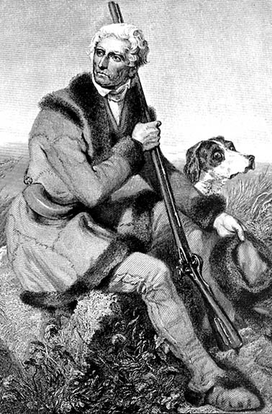
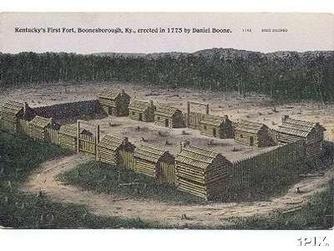
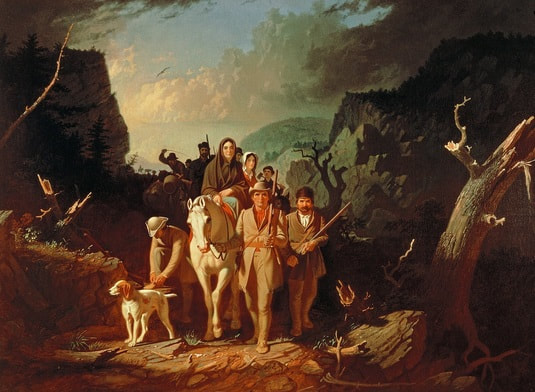




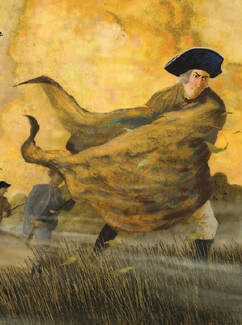
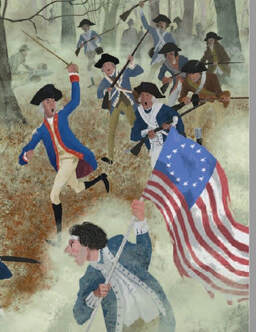

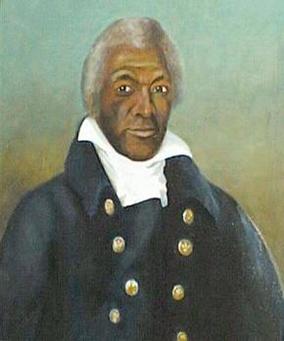
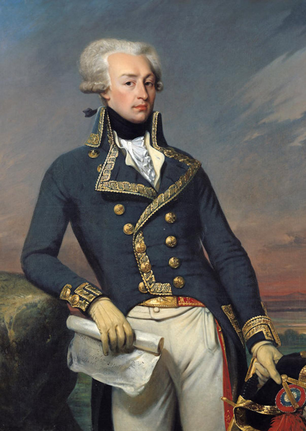
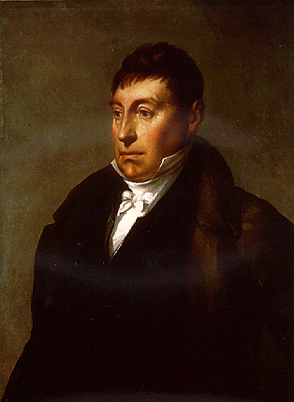


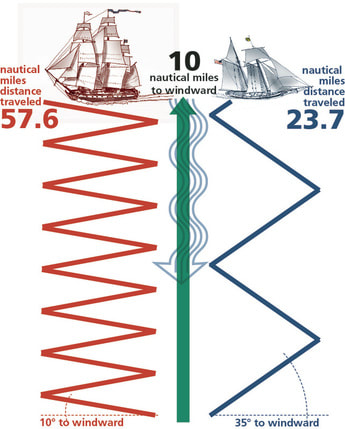

 RSS Feed
RSS Feed
